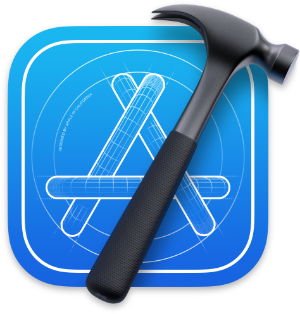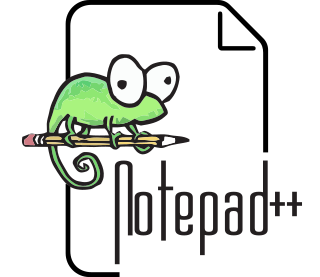
LaTeX is a software system for typesetting documents. LaTeX markup describes the content and layout of the document, as opposed to the formatted text found in WYSIWYG word processors like Microsoft Word, LibreOffice Writer and Apple Pages. The writer uses markup tagging conventions to define the general structure of a document, to stylise text throughout a document, and to add citations and cross-references. A TeX distribution such as TeX Live or MiKTeX is used to produce an output file suitable for printing or digital distribution.

GNU TeXmacs is a scientific word processor and typesetting component of the GNU Project. It originated as a variant of GNU Emacs with TeX functionalities, though it shares no code with those programs, while using TeX fonts. It is written and maintained by Joris van der Hoeven and a group of developers. The program produces structured documents with a WYSIWYG user interface. New document styles can be created by the user. The editor provides high-quality typesetting algorithms and TeX and other fonts for publishing professional looking documents.
OpenType is a format for scalable computer fonts. Derived from TrueType, it retains TrueType's basic structure but adds many intricate data structures for describing typographic behavior. OpenType is a registered trademark of Microsoft Corporation.

CinePaint is a free and open source computer program for painting and retouching bitmap frames of films. It is a fork of version 1.0.4 of the GNU Image Manipulation Program (GIMP). It enjoyed some success as one of the earliest open source tools developed for feature motion picture visual effects and animation work. The main reason for this adoption over mainline GIMP was its support for high bit depths which can be required for film work. The mainline GIMP project later added high bit depths in GIMP 2.9.2, released November 2015. It is free software under the GPL-2.0-or-later. In 2018, a post titled "CinePaint 2.0 Making Progress" announced progress, but version 2.0 has not been released as of 2022.

Xcode is Apple's integrated development environment (IDE) for macOS, used to develop software for macOS, iOS, iPadOS, watchOS, tvOS, and visionOS. It was initially released in late 2003; the latest stable release is version 15, released on September 18, 2023, and is available free of charge via the Mac App Store and the Apple Developer website. Registered developers can also download preview releases and prior versions of the suite through the Apple Developer website. Xcode includes command-line tools which enable UNIX-style development via the Terminal app in macOS. They can also be downloaded and installed without the GUI.

The KDE Advanced Text Editor, or Kate, is a source code editor developed by the KDE free software community. It has been a part of KDE Software Compilation since version 2.2, which was first released in 2001. Intended for software developers, it features syntax highlighting, code folding, customizable layouts, regular expression support, and extensibility. The text editor's mascot is Kate the Cyber Woodpecker.

Glade Interface Designer is a graphical user interface builder for GTK, with additional components for GNOME. In its third version, Glade is programming language–independent, and does not produce code for events, but rather an XML file that is then used with an appropriate binding. See List of language bindings for GTK for the available ones.

BBEdit is a proprietary text editor made by Bare Bones Software, originally developed for Macintosh System Software 6, and currently supporting macOS.

Kile is a TeX/LaTeX editor to edit TeX/LaTeX source code. It runs on Unix-like systems including Mac OS X and Linux, as well as Microsoft Windows via the KDE on Windows initiative, with the Qt and KDE libraries installed.

Notepad++ is a free and open-source text and source code editor for use with Microsoft Windows. It supports tabbed editing, which allows working with multiple open files in a single window. The product's name comes from the C postfix increment operator; it is sometimes referred to as npp or NPP.
This article provides basic comparisons for notable text editors. More feature details for text editors are available from the Category of text editor features and from the individual products' articles. This article may not be up-to-date or necessarily all-inclusive.

TextMate is a general-purpose GUI text editor for macOS created by Allan Odgaard. TextMate features declarative customizations, tabs for open documents, recordable macros, folding sections, snippets, shell integration, and an extensible bundle system.
The Levelator is a software application that makes adjustments to audio signals.

BibDesk is an open-source reference management software package for macOS, used to manage bibliographies and references when writing essays and articles. It can also be used to organize and maintain a library of documents in PDF format and other formats. It is primarily a BibTeX front-end for use with LaTeX, but also offers external bibliographic database connectivity for importing, a variety of means for exporting, and capability for linking to local documents and automatically filing local documents. It takes advantage of many macOS features such as AppleScript and Spotlight.

CSS animations is a proposed module for Cascading Style Sheets that allows the animation of HTML document elements using CSS.

TEA is a graphical text editor for power users. It is designed for low resource consumption, a wide range of functions and adaptability, and is available for all desktop operating systems supported by Qt 6, 5 or 4.6+, thus also OS/2 and Haiku OS. Its user interface is localized in several languages.
This is a timeline of GitHub, a web-based Git or version control repository and Internet hosting service.
AV1 Image File Format (AVIF) is an open, royalty-free image file format specification for storing images or image sequences compressed with AV1 in the HEIF container format. It competes with HEIC, which uses the same container format built upon ISOBMFF, but HEVC for compression. Version 1.0.0 of the AVIF specification was finalized in February 2019.











